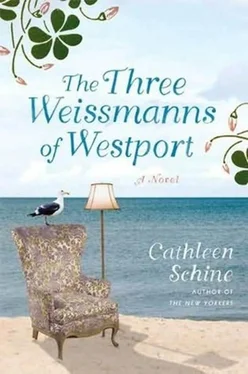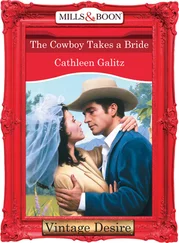"Your father is sentimental," Felicity said. "Not that it has done him any harm. In the way of real estate appreciation."
"Oh, I love Cape Cod in the winter," said Miranda. "To stand high up on one of those dunes, your bare feet numb in the cold sand, the wind blowing, the crash of the waves… It's incredibly romantic."
"I hope you won't be too disappointed if I tell you that what I like about going up there, especially in the winter, is the quiet. It's so"-he thought for a moment-"so unencumbered."
Annie turned that unexpected word over in her mind. Unencumbered.
"Well, that's not romantic at all," Miranda said, and her voice was equal parts shocked and authoritative, as if Frederick had suddenly lifted his shirt and showed her a bad case of ringworm, for which she just happened to have the right tube of cream in her purse. "We'll have to do something about that."
Unencumbered. Why did that sound so ominous to Annie, so bleak?
"Frederick is done with romance," Felicity said.
"You think I'm too old?" Frederick asked.
"Oh no, age has nothing to do with it. It's temperament, Frederick. And will." And she smiled a private smile, her lips pulled together in a cupid bow.
Miranda was saying that she had once gone paragliding on the beach in Wellfleet and suggested Frederick might treat his lack of romance by viewing the dunes from so many feet up; then she drifted off to a cluster of people she seemed to know.
"Why don't you just stay tonight?" Gwen said to Frederick. "With one of us," she added, glancing at Annie.
"I'm just a homebody, Gwennie. And I've got some kid house sitter I don't altogether trust this week-I have to get back."
"In that case, you better leave now," Gwen said. She gave Annie a challenging look. "Don't you think?"
Frederick also looked at Annie. "Maybe you'll come up sometime and see the place."
Evan said, "You could get three brownstones in Red Hook for that joint."
"Hardly that," Frederick said. "And you'll just have to buy your own brownstones in Red Hook or wait until I'm dead, because I have no intention of selling the house."
Evan shrugged. "I was just making an observation."
"Dad," Gwen said. She looked at her watch.
And, suddenly, Annie was alone.
She piled up the six or seven unsold books and thought wistfully of her own children. When would her boys start ordering her around, instead of the other way around?
She saw Frederick trotting back through the door toward her. He took both her hands, then kissed her on the cheek. Their noses bumped as he unexpectedly kissed her a second time on her other cheek.
"I had to thank you," he said. "I couldn't leave without thanking you."
"No, no, thank you for bringing in such a crowd."
"And don't worry about my driving back tonight," he added as he walked off. "I could do that drive in my sleep."
"That's not too reassuring," she said. "The sleep part."
"I'll call you," Frederick said, and he was gone.
Betty watched her daughter from the other side of the room. How serious she looked. Attractive, in a severe sort of way. Betty remembered giving Annie a sweater with sequins, just a few sequins, very tasteful, very chic. The look on Annie's face-it was so pure, such pure dislike. Betty smiled. It was like the time Annie had wanted a cowboy outfit and they gave her a pink cowgirl skirt. It had offended her, even at five. If she had known the word "garish" at that tender age, she would surely have used it. How Betty and Joseph had laughed that night in bed, embarrassed that they had so misread their daughter, amused by her sickened expression. And touched, too, for just as she had quickly hidden her dislike of the sequins years later, she had even as a tiny child tried to cover her disappointment as quickly as possible. Annie had such a good heart. It must be a burden to be so critical and so considerate at the same time, Betty thought. She was glad Annie seemed so taken with this Frederick Barrow person. He had a twinkle in his eye. Annie could use a twinkle. Poor Annie. She had always been such a grown-up little girl. It had been touching when she was a child, that worried little face watching her heedless, happy sister roar and sob and spin in circles, and it was touching still. Betty watched Miranda now, striding across the room to wrap her arms around Annie. Annie's expression softened. How lucky I am, thought Betty. She felt the damn tears gathering. I'm so lucky, she repeated to herself. But the tears never listened to her these days. Had they ever? It was hard to remember what she had been like before she was like this.
Miranda lay in her childhood bed and listened to the jingle of cicadas. There must be so many of them to make such a clatter. Cicadas, if she remembered correctly, were the ones that hatched, then rattled, then mated and dropped dead. Miranda felt a stab of sympathy for the noisy insects. It was a pattern she was intimately familiar with. Love arrived; one was lucky enough to feel its warmth; then the season passed, and one shivered in the cold. Still, she had no regrets in that arena, at least. Seasons always returned, and so did love. Love was unchanging, even if the man she shared it with was not, even if she produced no cicada offspring. Love was eternal, even if lovers were not.
She considered how her mother must feel after believing her marriage was eternal, only to find out it, too, had a season, albeit an extraordinarily long one. Was it the same way Miranda felt after each of her own fiery breakups, a desire to move on, to revive the delicious rattle of courtship as soon as possible?
She crept up to her mother's bedroom and stood in the doorway at the top of the stairs. Moonlight came softly through the open window. How pale Betty looked in the blue light. She breathed evenly, a gentle sound just shy of snoring. Miranda realized that her mother was old, an old lady, her skin loose on her fragile bones. And then suddenly, piercingly, Miranda knew that her mother did not feel the way Miranda felt after a breakup, that she did not feel a desire to move on, to rattle and mate and bask in a new season of love. She knew that her mother felt like what she was: an old lady alone in a bed.
Within a few weeks, the little cottage underwent a remarkable transformation. Betty's pale-blue-and-cream-colored silk Persian rug lay across the top of the worn old linoleum of indeterminate color. The creamy silk chenille Queen Anne chairs from the living room and leather sofa from Joseph's library had been arranged in cozy proximity in the small space. Even the curtains from the apartment had been adapted to the little room, which now resembled a Connecticut cottage living room in a 1930s movie.
There were other resemblances to the 1930s that were less welcome. The stove dated from that time. The furnace could not have been much more recent. The dishwasher was from the sixties, but its only function now was to hold up the small kitchen counter. Cousin Lou had offered to update all these appliances, but here Betty had drawn the line on his beneficence.
"It's all so quaint," she had said. "And as soon as Joseph, may he rest in peace, sorts out all the legalities, I will be back in my apartment and you can tear this sweet little cottage down…"
Cousin Lou winced at the words "tear" and "down" in the same sentence.
"Beautify," Betty corrected herself. "You will be able to beautify. No sense in beautifying new appliances, though, is there?"
Betty was very proud of this sacrifice on her part. She wanted to show strength, to reassure her daughters, to reassure the world at large and, perhaps most of all, to reassure herself. Staying at her cousin's cottage as a family guest was one thing. But being given a new refrigerator, like those poor women on Queen for a Day, was more than her self-respect could stomach.
Читать дальше












